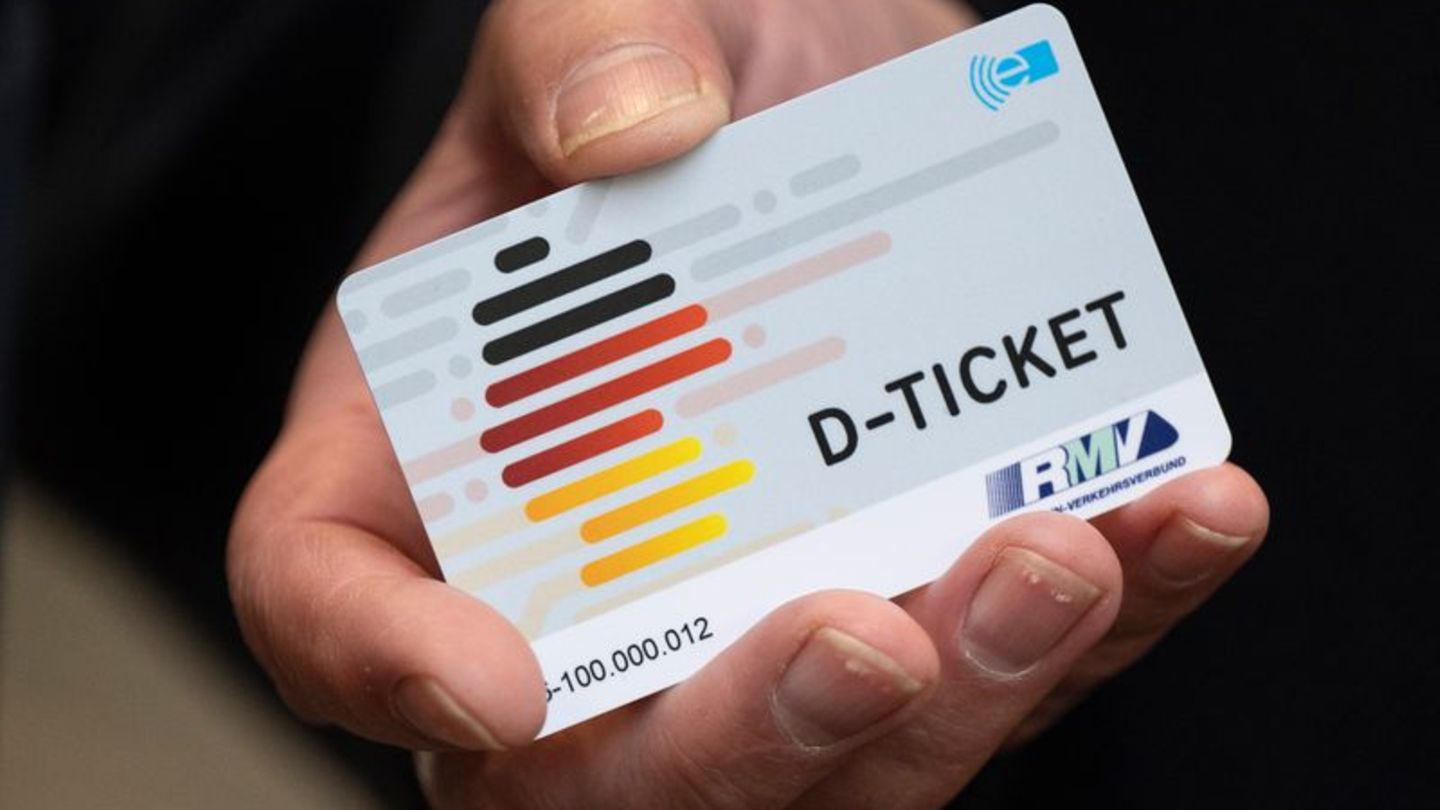The Deutschlandticket will be one year old next week. But the dispute over its financing is at least as old as the subscription itself.
More than every second holder of the Deutschlandticket for local public transport is a permanent user who has had the ticket continuously since its inception. Another third had the subscription for at least eight months, according to figures from the Association of German Transport Companies (VDV), which are available to the German Press Agency. Around seven percent of holders book the ticket sporadically for individual months and then cancel it again at short notice.
The VDV wants to present detailed data on the use of the 49 euro subscription today on the occasion of the almost one-year anniversary of the offer.
The ticket was introduced on May 1, 2023 and has since enabled nationwide travel on public transport buses and trains for 49 euros per month. The Deutschlandticket is available as a monthly subscription, which can be canceled at any time at the end of the month. It “made a significant contribution to winning back lost passengers for public transport during the pandemic,” said VDV President Ingo Wortmann.
Price guarantee is only available for this year
But the political dispute over its financing is as old as the offer. Because the transport companies lose income due to the cheaper subscription, compensation is needed from the federal and state governments. They each subsidize the subscription with 1.5 billion euros per year. The Federal Transport Minister is also in favor of making the offer permanent. However, the federal government’s funding commitments currently only apply up to and including 2025. There is only a price guarantee for users for this year. The monthly price could increase from 2025.
Wortmann demanded that the federal government “clearly and clearly” commit to long-term co-financing of the ticket. “The financing situation in the industry is getting dramatically worse. In public transport, we have never been further away from the expansion goals politically agreed upon in the wake of the transport transition than we are now.”
Source: Stern




